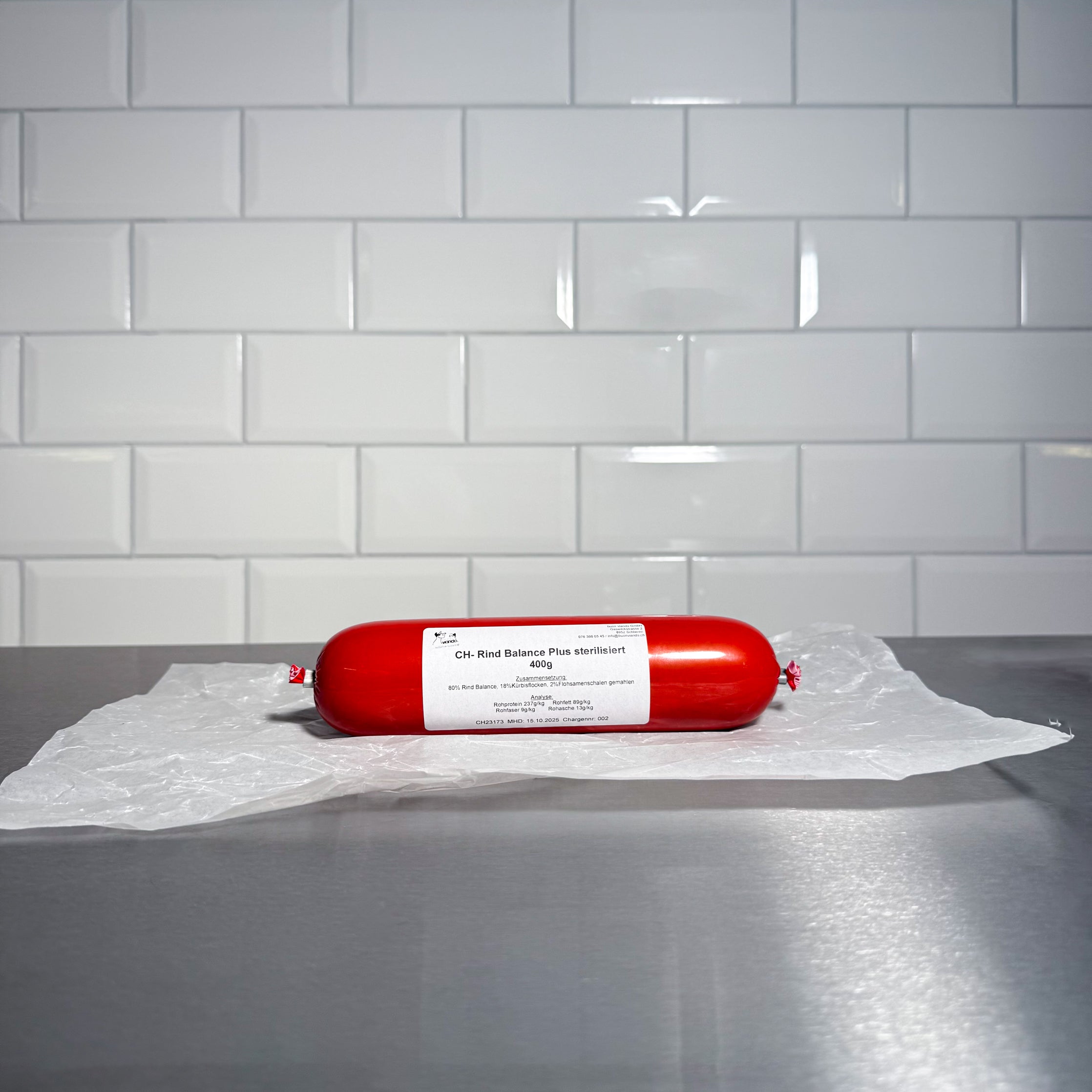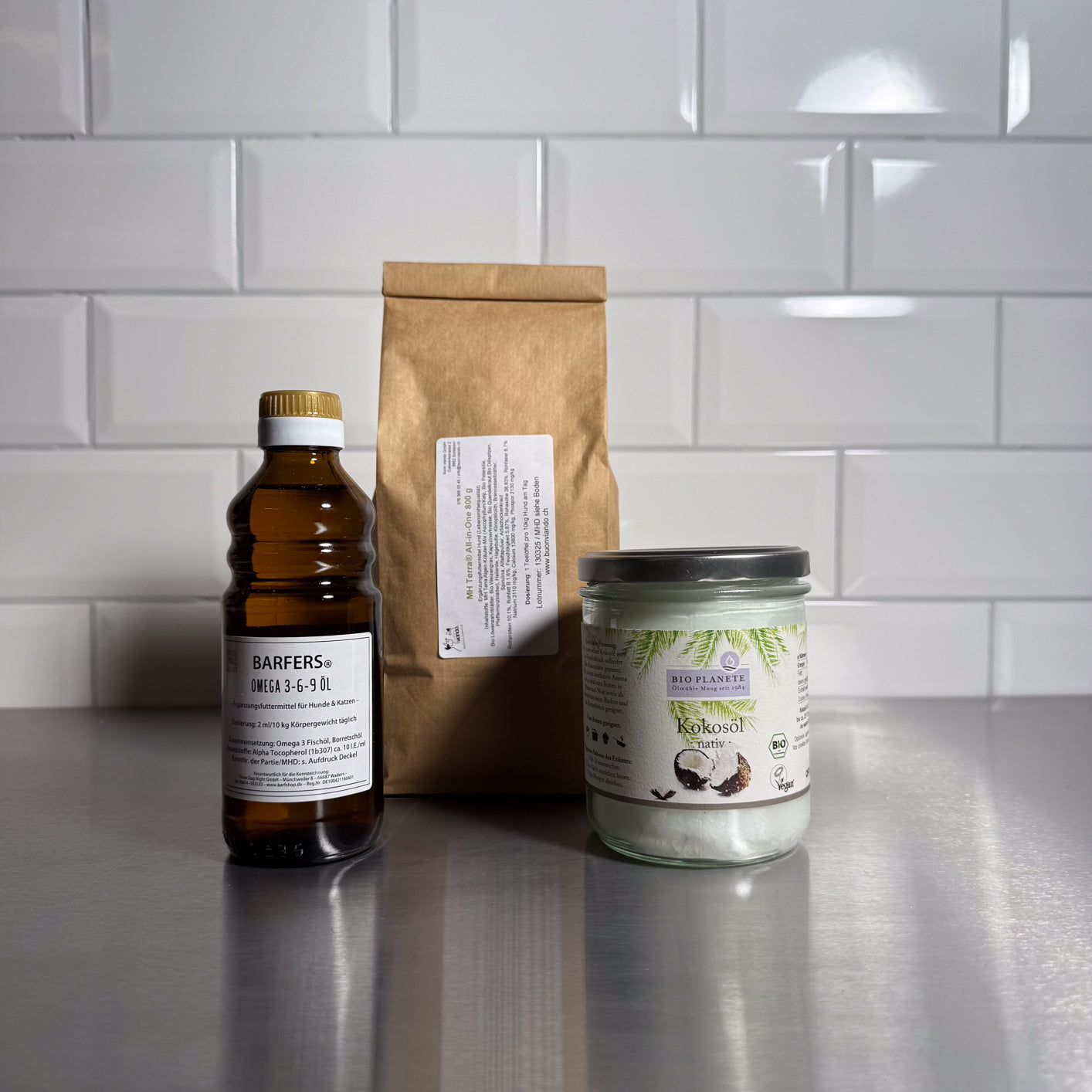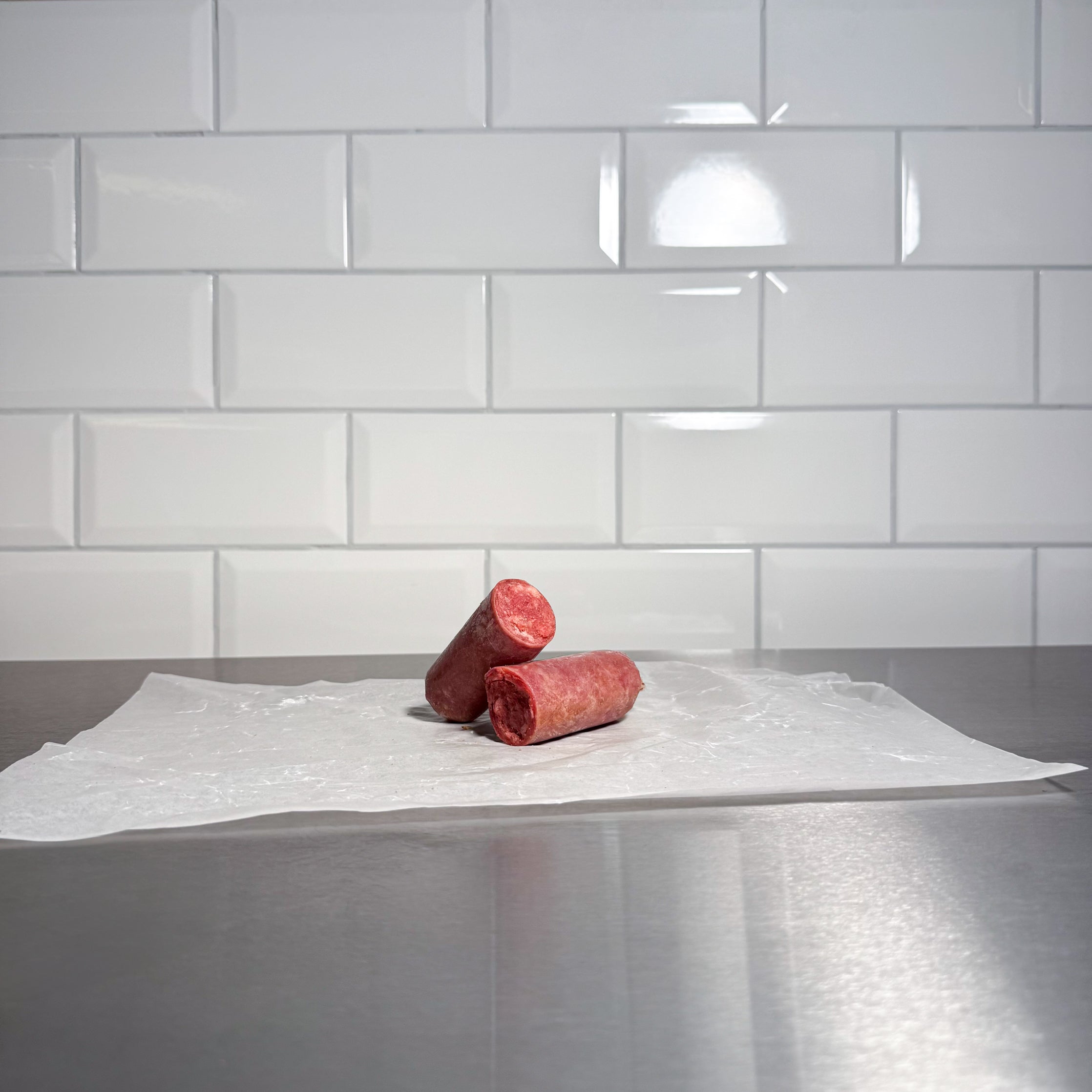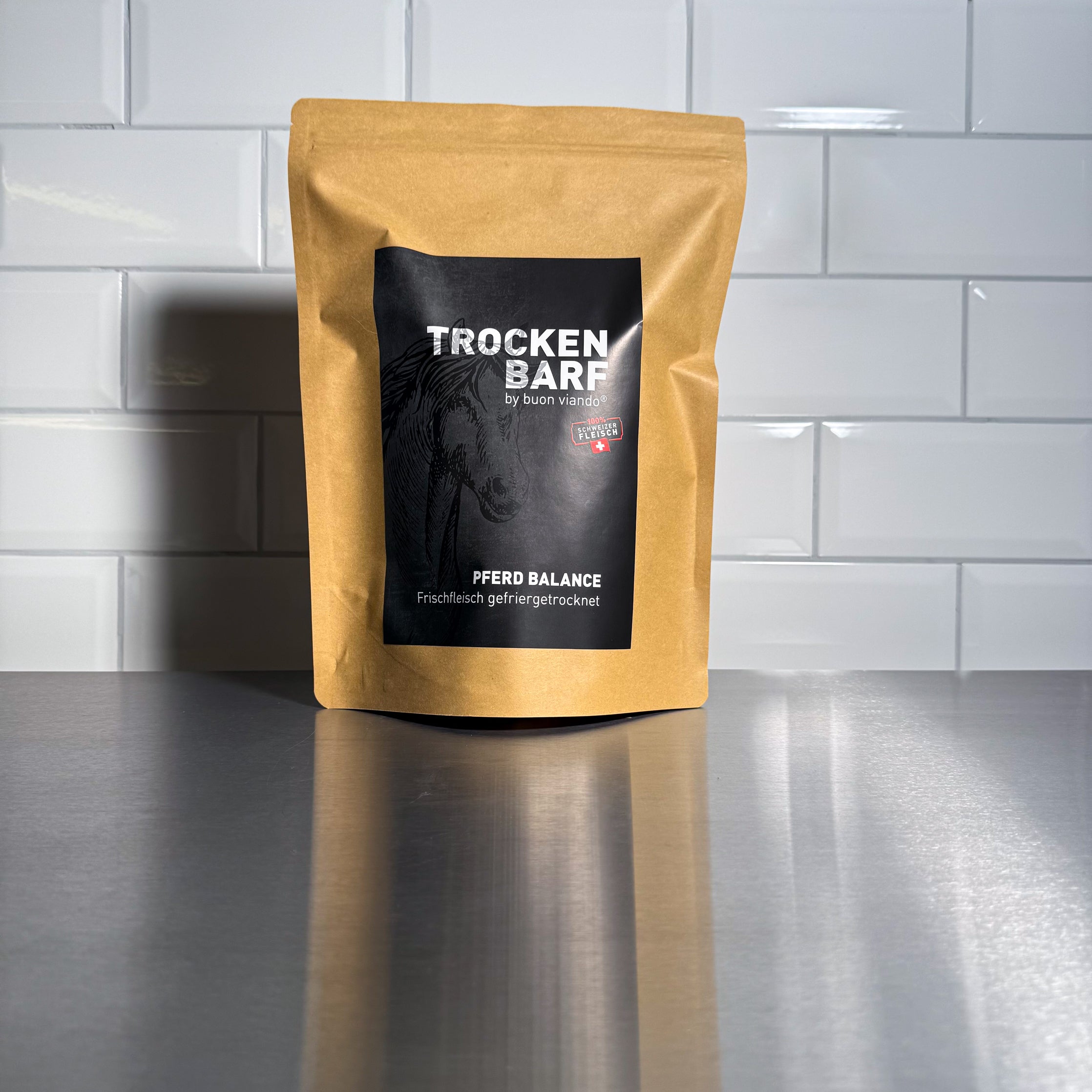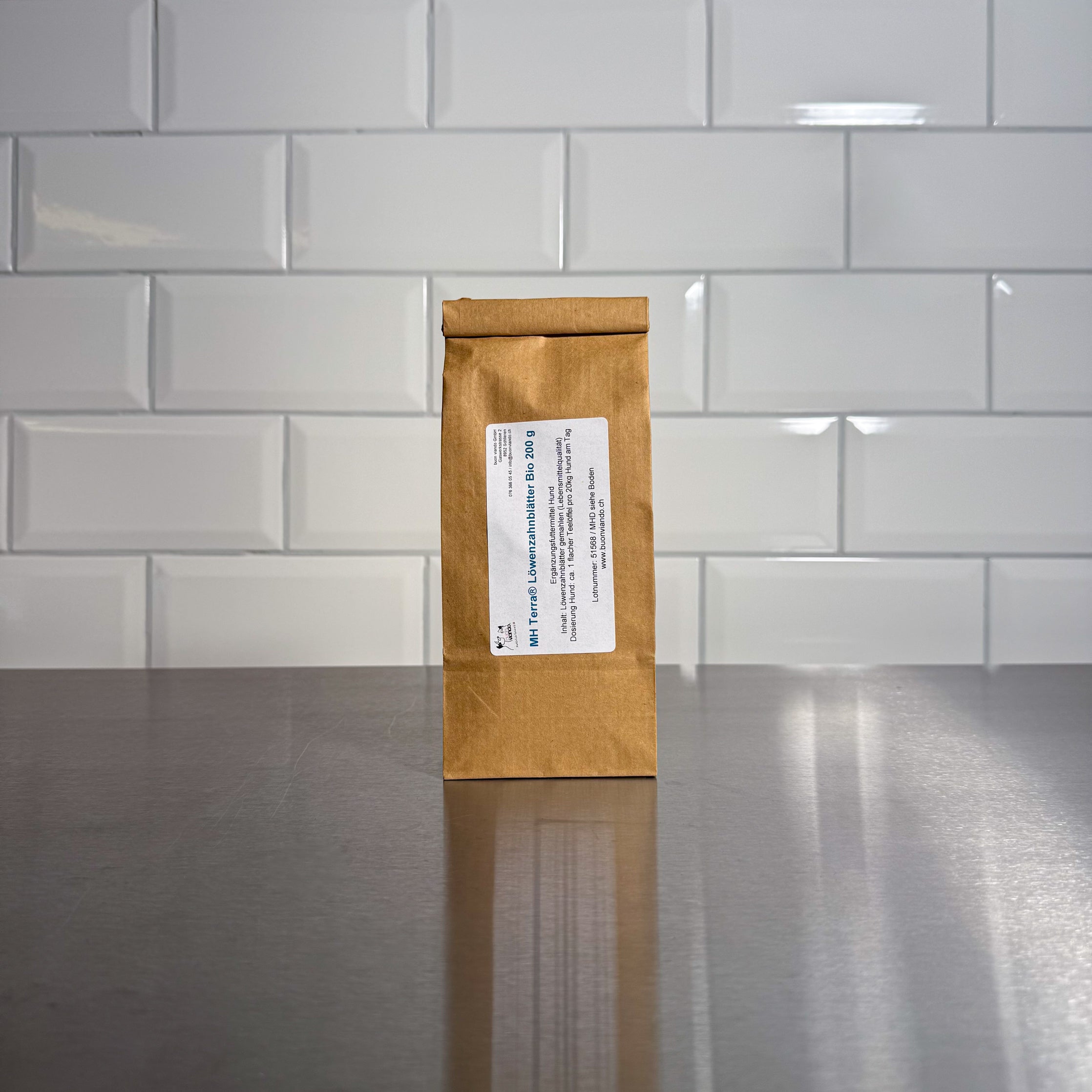Help, my dog is turning into a cow – Why do dogs eat grass?
Every dog owner has experienced it before: During a walk, their four-legged friend suddenly stops, sniffs extensively, and then begins to eat grass with relish. While some dogs selectively pluck individual stalks, others practically gobble up the greens. But why do they do this? And when should we be concerned? First of all: In most cases, eating grass is completely normal – but it can also be an indication of a specific need.
Myth of Deficiency – Is a Nutrient Deficiency Really to Blame?
The most common assumption is that dogs eat grass because they lack nutrients. But there is no scientific evidence for this. Most dogs, whether they are fed raw food or not, should be supplied with the essential vitamins and minerals. Nevertheless, it may be that your dog is intuitively seeking out certain herbs or grasses because they are missing something – for example, bitter substances or fiber.
What's really behind eating grass?
- Because it simply tastes good! Fresh spring grass, in particular, is sweet and tasty. Your dog might just enjoy it.
- Digestive aid – Grass can act as a vehicle for swallowed foreign objects, hair, or bone fragments, helping to get rid of them naturally.
- Calming & stress relief – Chewing grass can be relaxing for dogs and serve as a form of self-soothing, similar to how humans chew gum.
- Gastric hyperacidity – A dog with too much stomach acid may instinctively eat grass to relieve itself. This can lead to vomiting after eating.
- Detoxification & self-medication – Some wild herbs that dogs ingest with grass have blood-purifying or detoxifying properties.
- Hunger, boredom & thirst – Some dogs nibble on grass when they are hungry or simply bored. But thirst can also play a role! Fresh grass contains a certain amount of water, and some dogs instinctively consume it to support their hydration – especially on warm days.
Not all grasses are created equal – What dogs really eat
If your dog eats grass, you should pay close attention to what they're actually nibbling on. Many dogs prefer wild herbs that contain valuable ingredients:
- Dandelion – promotes digestion, detoxifies the liver, and supports the kidneys
- Nettle – promotes blood formation, boosts metabolism, and is anti-allergic
- Yarrow – good for digestion and circulation
- Cuch grass – has a soothing effect on the stomach and intestines
- Plantain – helps with respiratory illnesses and has antibacterial properties
So, if your dog repeatedly eats grass, it may be that they're specifically looking for these herbs. However, not all grasses are harmless – make sure your dog doesn't eat in chemically treated areas. Pesticides and fertilizers can lead to poisoning.
What to do if your dog eats grass excessively?
Occasional grass eating is perfectly normal. However, if your dog compulsively eats large amounts of grass, you should take a closer look. Here are a few ways you can support them:
- Incorporate bittering agents into their diet – If your dog eats grass to aid digestion, bittering agents such as dandelion powder, pureed chicory, or barley grass powder can help.
- Add more fiber to their food – If your dog uses grass as a digestive aid, fiber sources such as barley grass, psyllium husks, or pureed vegetables can be a good alternative.
- Preventing hyperacidity – If your dog often eats grass and vomits afterwards, an overly acidic stomach could be the problem. Feeding small, regular meals and stomach-friendly supplements such as slippery elm bark or healing clay like Sobamin can help.
- Reduce stress – If your dog eats grass out of boredom or nervousness, it can help to add more variety to their daily routine or offer them chew toys.
- Test their stool for parasites – Grass can be contaminated with lungworm eggs or other parasites. If your dog eats grass regularly, a stool check for lungworms with the WormCheck can be helpful.
Conclusion: Eating grass is usually harmless
If your dog occasionally eats grass, it's usually nothing to worry about. It simply tastes good or helps them relieve minor gastrointestinal discomfort. However, if they eat grass excessively, vomit, or exhibit other digestive problems, it's worth taking a closer look. By providing targeted supplements with dandelion, barley grass, Sobamin, or slippery elm, you can help them reduce their need for grass and optimally support their digestive tract.
And let's be honest: Who can be angry with a dog that grazes happily? After all, it could be worse – imagine if he had a preference for sofa cushions instead! 😉


